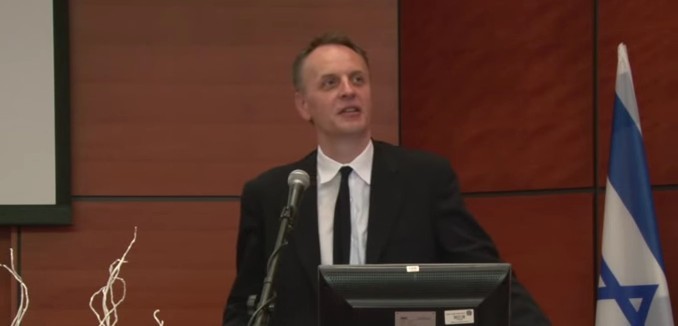A group of 500 academics, calling themselves “Concerned Academics for Editorial Ethics,” have published an open letter to the editor and publisher of the medical journal The Lancet, asking them to retract a controversial anti-Israel letter published last year, according to a report Sunday by the media watchdog HonestReporting.
A group of 500 doctors, including a number of Nobel laureates, have accused the editor and publisher of the British medical journal, The Lancet of “grossly irresponsible and damaging editorial misuse of The Lancet for political purposes,” in its coverage of the Israel-Palestinian conflict.
The main issue of the complaint revolves around a vicious “open letter” published during last summer’s Gaza war. The letter accused Israel of “military onslaught on civilians in Gaza under the guise of punishing terrorists.” The letter failed to mention Hamas’s rocket attacks on Israeli civilians.
The new statement, issued by a group called Concerned Academics, claims the anti-Israel letter “consists of numerous vicious and deliberately inflammatory falsehoods, omissions and abusive dishonesty, which have no place in any responsible publication.”
The letter calls on the editor and publisher to “comprehensively retract the article and formally apologize for their grave breach of editorial ethics.”
Lancet editor Richard Horton, speaking while visiting Israel several months after the publication of the anti-Israel letter, acknowledged that it “did not convey the level of complexity that is the reality in Israel,” but still refused to retract the letter.
In addition to the many falsehoods asserted in the controversial letter, two of the doctors who signed the letter to The Lancet had ties to white supremacist David Duke.
The website of Concerned Academics points out that collaboration with the Lancet’s publishing company, Reed Elsevier, requires trust that the publisher is “maintaining high ethical and scientific standards.” These standards were violated by publication of the anti-Israel letter, which contained “inflammatory falsehoods, omissions and abusive dishonesty.”
Liam Hoare provided a complete overview of the letter, as well as Horton’s somewhat dodgy history, especially regarding Israel, in A Serious Medical Journal Just Went Totally Clinical, which was published in the November 2014 issue of The Tower Magazine.
Published at the zenith of Operation Protective Edge, the letter went on legitimize Hamas’ aggression, speculated that Israel might be responsible for war crimes, called for the “cessation of any trade and collaborative agreements” with the Jewish state, and suggested that Israeli academics who failed to denounce the military operation should be boycotted. Clearly, the letter went far beyond the role of correspondence suitable for a peer-reviewed medical journal.
Indeed, its publication and the subsequent fallout suggest that, due to the failure to adequately scrutinize the letter and those who authored it, The Lancet allowed itself to be used as a forum for the dissemination of pure and unfettered anti-Israelism. Moreover, subsequent editorials and statements by Horton have indicated a persistent failure to grasp what may be an even more serious problem: The authors of the letter appear to have been motivated, not by “the survival, health, and wellbeing of Gaza’s and Israel’s civilian residents,” but by views that indulge in conspiracy theory and flirt with anti-Semitism.
[Photo: Rambam HCC / YouTube ]




